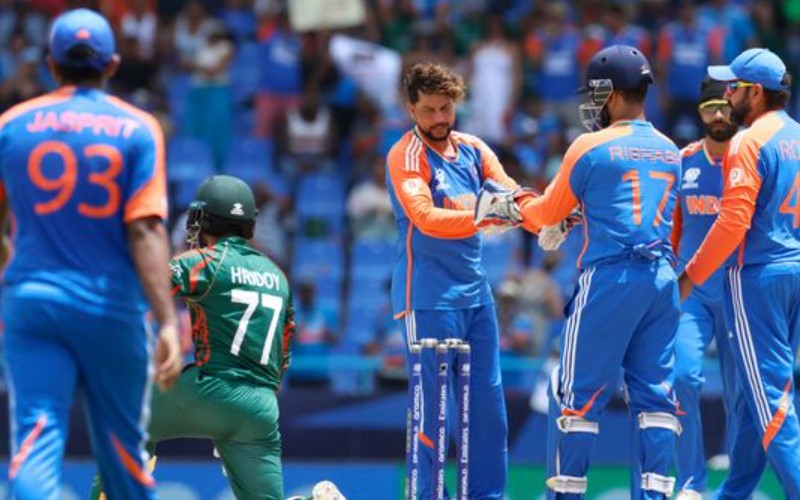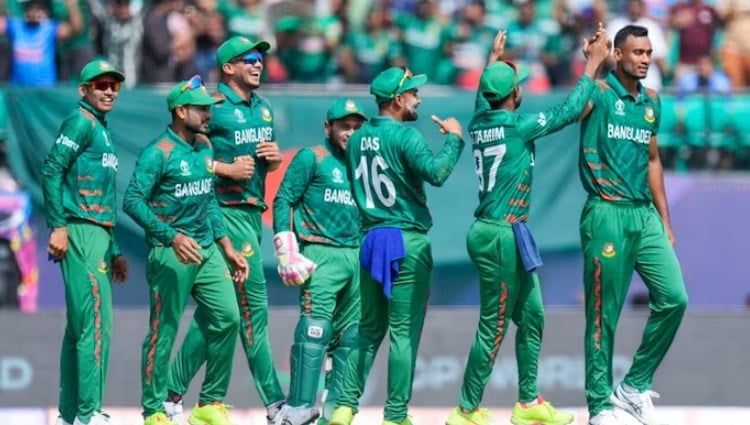Bangladesh captain Najmul Hossain Shanto on Sunday (October 6) said that their failure to utilise powerplay well is hurting them in T20Is as well. However, Team India beat Bangladesh by seven wickets with 49 balls in hand in the opening game of the three-match T20I series at Gwalior. Meanwhile, Bangladesh got only 39 runs in the first six overs after being asked to bat and eventually finished with 127 as well. India, on the other hand, scored 71 runs in the powerplay and reached the target in 11.5 overs.

“Powerplay is definitely a worry. The approach we talked about (before the game), it will be successful if we make a good start with the bat,” Najmul Hossain told reporters after the opening game at the Madhav Rao Scindia Cricket Stadium. “We have to keep the wickets in the first six overs, and score runs in those. Otherwise those coming in next, it becomes too challenging for them. We have struggled in the powerplay. Those batting in the power play must take more responsibility.”
ALSO READ: “Shubman’s captaincy is very good” – Ravi Bishnoi on Shubman Gill
However, Najmul said that skill-set and mentality are the main points of difference between the two teams but he also added that their team is not as bad as it seemed after the first game against India.

“I wouldn’t say we played badly. We are a better team than this. We haven’t done well in this format for a long time, but I don’t believe we are such a bad team,” said Najmul. “I don’t want to talk about any individual player. I think the batting unit didn’t do well today. There will be aggression in the way we approach our scoring, but sometimes we have to select the balls correctly. We will think about it, but we can’t rush in changing our approach.”
“We have the ability, but we have room for improvement in our skills. We have been batting in this way for the last ten years. Sometimes we do well. We have to make some changes, perhaps where we practice back home. We play on 140-150 wickets at home. Our batters don’t know how to score 180 runs. I won’t blame just the wickets, but we have to consider skills and mentality,” he concluded.
